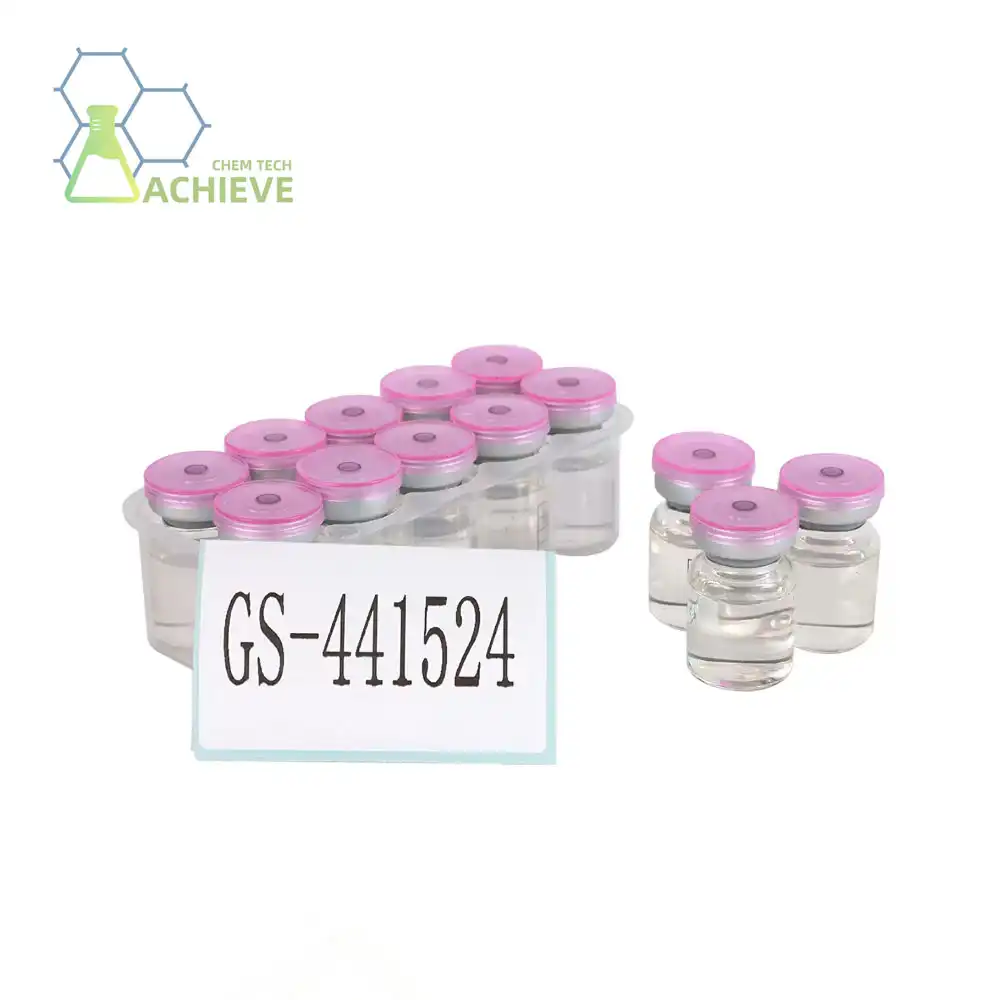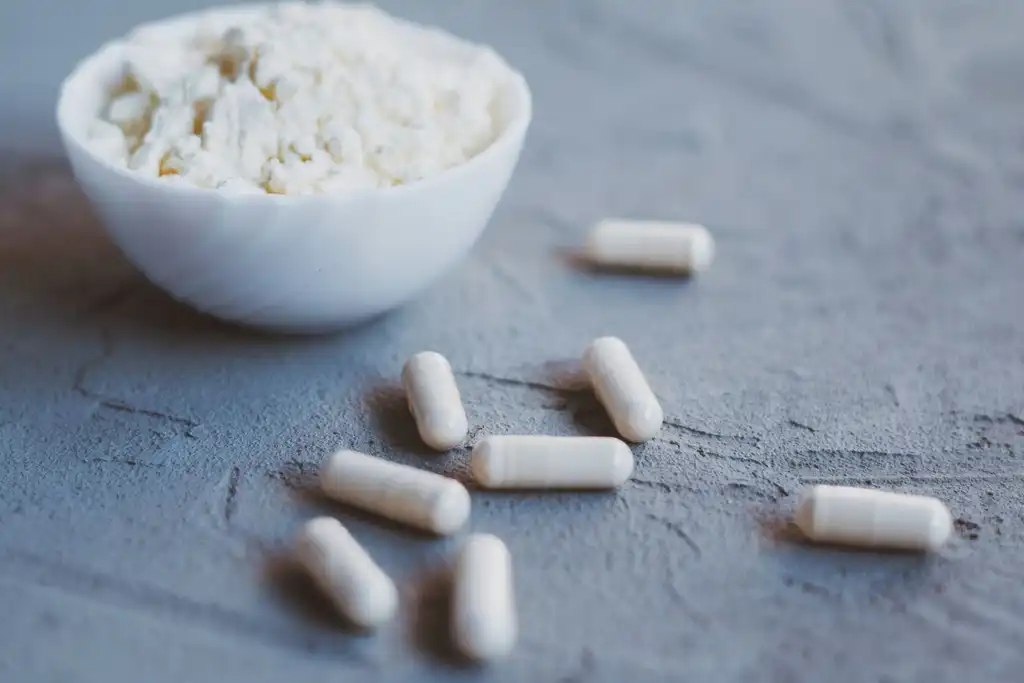Can my cat'FIP be cured?
Feline Infectious Peritonitis (FIP) has long been considered a death sentence for cats. However, recent breakthroughs in treatment have given hope to cat owners worldwide. This article explores the potential cure for FIP using GS 441524 powder, shares success stories and discusses relapse rates after treatment.
|
|
|
Can FIP really be cured by GS 441524?
The short answer is yes, FIP can potentially be cured using GS 441524. This antiviral compound has shown remarkable efficacy in treating cats with FIP, a disease that was once thought to be invariably fatal.
GS 441524 works by inhibiting the replication of the coronavirus responsible for FIP. It effectively halts the progression of the disease, allowing the cat's immune system to regain control and eliminate the virus. The treatment typically involves daily injections or oral administration of the medication for 12 weeks or more, depending on the severity and form of FIP.
While GS 441524 is not yet officially approved for veterinary use in many countries, it has been used successfully in numerous cases worldwide. The treatment protocol usually includes:
- Daily administration of GS 441524
- Regular monitoring of blood work and clinical signs
- Adjusting dosage based on the cat's response and weight
- Continued treatment for at least 12 weeks, sometimes longer
It's important to note that while GS 441524 powder has shown impressive results in treating FIP, the treatment can be both costly and complex. It demands significant dedication and commitment from cat owners, as they must carefully follow the prescribed regimen. Close cooperation with veterinarians who have expertise in FIP treatment is crucial to ensure the best possible outcome for the cat. The process may involve regular monitoring, adjustments to the treatment plan, and consistent administration of the medication, all of which can be time-consuming and require a great deal of patience.
|
|
|
|
Success stories: Cats that fully recovered from FIP
The use of GS 441524 has brought hope to many cat owners facing the devastating diagnosis of Feline Infectious Peritonitis (FIP). This antiviral treatment has turned what was once considered a terminal condition into something treatable. Here are a few heartwarming success stories of cats that fully recovered from FIP, inspiring both pet owners and the veterinary community.
Luna's Triumph
Luna, a 1-year-old Siamese cat, was diagnosed with wet FIP, a particularly aggressive form of the disease. Her owners were devastated by the diagnosis, as they were told there was little hope for recovery. However, they decided to try GS 441524, an experimental antiviral medication. After 12 weeks of daily injections, Luna’s condition took a dramatic turn. Her symptoms, including fluid buildup in her abdomen, vanished, and her energy levels soared. Blood tests showed her health had fully restored, and two years later, Luna remains completely healthy and FIP-free. Her owners are forever grateful for the second chance she was given.
Max's Miraculous Recovery
Max, a 3-year-old tabby, had a severe case of neurological FIP, which left him with debilitating symptoms such as seizures and loss of motor control. The outlook was grim, and his owners feared the worst. Nevertheless, they opted to begin a high-dose regimen of GS 441524. Over 16 weeks, Max made a miraculous recovery. His seizures stopped, and his motor functions returned to normal. Once again, Max was able to run and play like the energetic cat he once was. His recovery has been a testament to the power of GS 441524, and he has continued to thrive in the years since.
Bella's Battle with Ocular FIP
Bella, a 6-month-old Persian kitten, was diagnosed with ocular FIP, which caused severe eye inflammation and threatened her vision. Veterinarians were concerned she might lose her sight entirely. Determined to give Bella a fighting chance, her owners began GS 441524 treatment. By the end of the eighth week, her eyes had improved significantly, and the inflammation had subsided. Bella completed a full 12-week course of treatment, and her vision was saved. Over a year later, she is completely symptom-free and living a happy, healthy life.
These success stories highlight the potential of GS 441524 powder in treating various forms of FIP, including wet, neurological, and ocular manifestations. While every case is unique, these examples demonstrate that recovery is possible even in severe cases.
 |
 |
 |
Relapse rates after GS-441524 treatment
While GS 441524 has shown remarkable success in treating FIP, it's crucial to understand that relapses can occur. The relapse rate after GS 441524 treatment is estimated to be around 10-20%, depending on various factors.
Factors influencing relapse rates:
- Treatment duration: Cats treated for less than 12 weeks may have a higher risk of relapse.
- FIP form: Neurological FIP cases tend to have higher relapse rates due to the blood-brain barrier.
- Dosage: Inadequate dosing or premature dose reduction can increase relapse risk.
- Individual cat factors: Age, overall health, and immune system strength can affect outcomes.
Monitoring for relapses
After completing GS 441524 treatment, it's crucial to monitor cats closely for any signs of relapse. This typically involves:
- Regular check-ups with a veterinarian
- Periodic blood tests to monitor key indicators
- Watching for any return of previous symptoms
- Being alert to new or unusual behaviors
If a relapse occurs, prompt retreatment with GS 441524 is often successful. In some cases, a higher dose or longer treatment duration may be necessary.
Long-term outlook
The majority of cats successfully treated with GS 441524 remain FIP-free long-term. Studies have shown that cats who survive 12 weeks post-treatment without relapse have an excellent prognosis for long-term survival.
It's important to note that feline infectious peritonitis treatment with GS-441524 is still relatively new, and long-term data is still being collected. However, the results so far are extremely promising, with many cats living normal, healthy lives years after treatment.
|
|
|
|
Conclusion
The advent of GS 441524 has revolutionized the treatment of FIP, offering hope where there was once only despair. While challenges remain, including accessibility and cost of treatment, the success stories and improving survival rates are undeniable. For cat owners facing a FIP diagnosis, GS 441524 represents a real chance at a cure.
If you're in the pharmaceutical industry and interested in high-quality chemical products like GS 441524 powder, Shaanxi BLOOM TECH Co., Ltd. is here to help. With our state-of-the-art GMP-certified production facilities and expertise in various chemical reactions and purification methods, we're equipped to meet your bulk purchasing needs. Whether you're in pharmaceuticals, polymers, or specialty chemicals, we can provide the products you need. To learn more about our offerings and how we can support your business, please contact us at Sales@bloomtechz.com. Let's work together to advance your research and development efforts in FIP treatment and beyond.
References
1. Pedersen, N.C., et al. (2019). Efficacy and safety of the nucleoside analog GS-441524 for treatment of cats with naturally occurring feline infectious peritonitis. Journal of Feline Medicine and Surgery, 21(4), 271-281.
2. Murphy, B.G., et al. (2020). Treatment of cats with feline infectious peritonitis with GS-441524. Animals, 10(2), 280.
3. Addie, D.D., et al. (2020). Feline infectious peritonitis. ABCD guidelines on prevention and management. Journal of Feline Medicine and Surgery, 22(11), 1028-1045.
4. Dickinson, P.J., et al. (2020). Antiviral treatment using the adenosine nucleoside analog GS-441524 in cats with clinically diagnosed neurological feline infectious peritonitis. Journal of Veterinary Internal Medicine, 34(4), 1587-1593.

Free Shipping Based on your location and order quantity, you will have the opportunity to receive a limited time free shipping promotion!

BLOOMTECHZ











